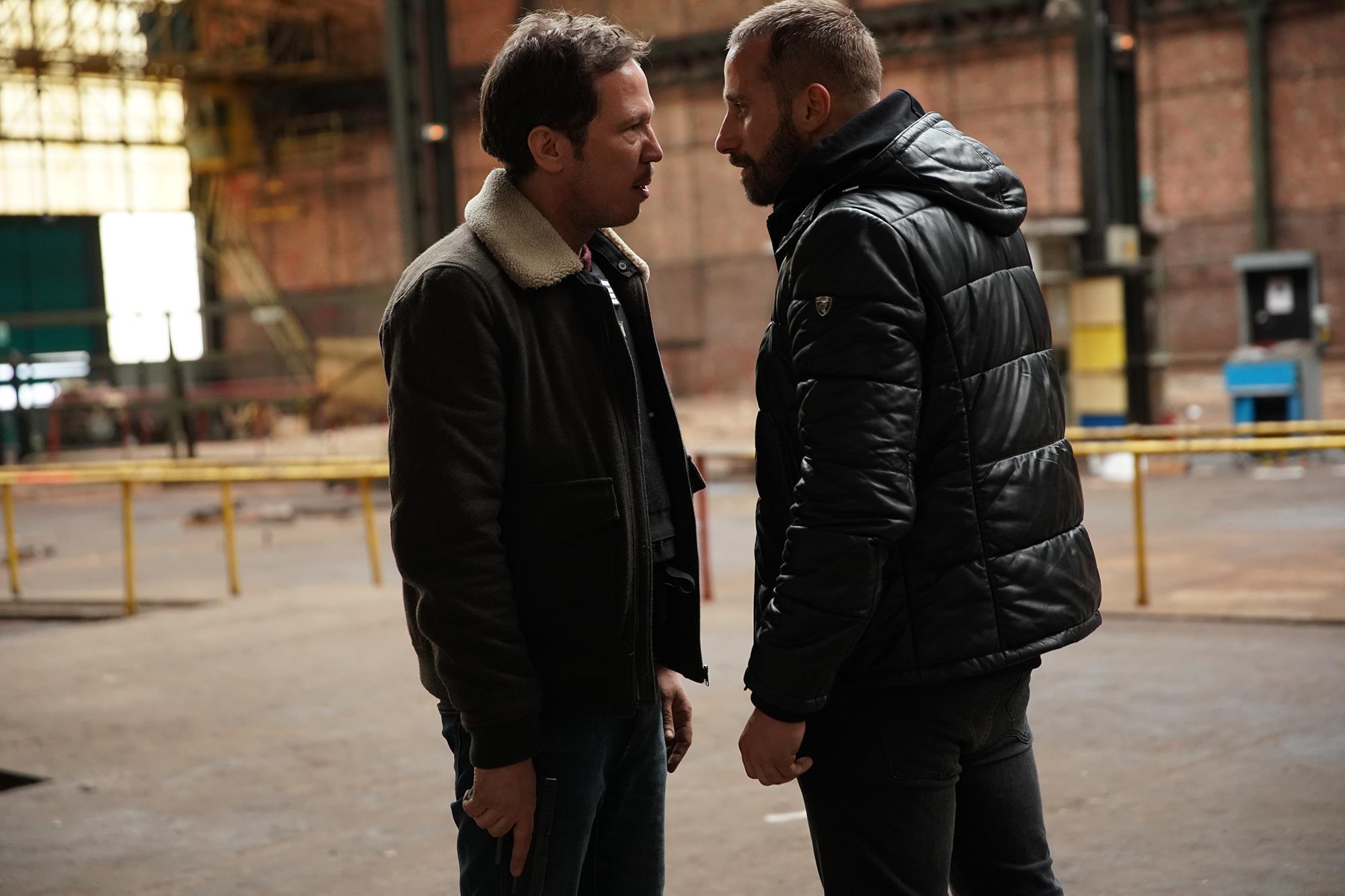Venice Film Review: ‘Close Enemies’ (Frères Ennemis)
By Jessica Kiang
LOS ANGELES (Variety.com) – David Oelhoffen’s last film, which played in competition in Venice in 2014, was called “Far From Men,” but was characterized by a lean, craggy, proto-Western narrative that metaphorically lashed its two stars, Viggo Mortensen and Reda Kateb, close together for the duration. By contrast, his newest feature, which also landed a competition slot in Venice, has the English title “Close Enemies” but keeps its tussling main characters — again each on opposite sides of the law, and this time played by Kateb and Matthias Schoenaerts — far apart for most of the running time.
That’s an irony it would be easy to dismiss if it didn’t also speak to this film’s fatal flaw: While the frictive tension is palpable between Schoenaerts’ bulked-up, doggedly loyal drug runner and Kateb’s soulfully buttoned-down, conflicted cop in their few scenes together, for the most part, their destinies run in frustrating parallel, never really entwining in a meaningful way. And so the mournful, mythic texture, moral knottiness and psychological richness attained in “Far From Men,” which was based on an Albert Camus story, eludes us in “Close Enemies” which was apparently based on every genre crime drama ever. At best, it’s a consummately well-crafted and committed version of a story we’ve seen play out dozens of times before.
It opens with a literal bang as Driss (Kateb), a narcotics officer working the beat of the suburban Parisian projects in which he grew up, leads a raid on an apartment in an unlovely high-rise which results in the arrest of several miscreants. One of them, being jostled into handcuffs, appeals pointedly to Driss’ racial loyalty. “I don’t speak Arabic,” Driss lies, turning back to stare impassively through the window.
Manu (Schoenaerts) is at that moment across town, kicking a football around with the son he dotes on and to whom he is teaching a few Arabic phrases. He and his best friend Imrane (Adel Bencherif) are on their way to form part of a raucous welcome committee for Nouri (Omar Salim), an associate who has just been released from prison. Later, at the party for Nouri’s homecoming held in the house of powerful clan patriarch and crime boss Raji (Ahmed Benaissa), Manu’s status as a beloved adopted member of this Moroccan/Algerian community is made clear, and the contrast between him and childhood friend Driss eloquently established. Manu is carefree and popular, always among people, the center of a tight knot of camaraderie; Driss, except for the daughter he is raising, is always alone. The interactions with his police colleagues are fractious and marked by tacit distrust, while a touching scene later on shows how even his parents have ostracized him, as an act of self-preservation.
But having established these oppositions, Oelhoffen’s script, co-written with Jeanne Aptekman, doesn’t let Manu and Driss meet face-to-face until the 45-minute mark, and only sporadically thereafter. In the meantime, the plot grinds mechanically into gear after a brilliantly well-staged kickstart in which Imrane, who is in fact snitching to Driss, is killed in a shockingly sudden drive-by during a big cocaine score. Manu narrowly escapes with his life, under a cloud of suspicion and bent on vengeance.
The craft is impeccable if again unfolding in a very familiar register, from Superpoze’s low-key buzzing electro score to DP Guillaume Deffontaines’ gritty, muscular camerawork, set in a Gillette-for-men palette of gun-metal greys and dull navy blues. The set pieces are exciting, the shoot-outs bloody, and the women sidelined as either liabilities, alibis, petitioners, or voices of conscience for their menfolk.
However, as though obeying the rules of the romantic comedy despite being laden with testosterone seriousness, the film really comes to life in the brief moments of contact between its two stars. Those barbed exchanges, freighted with betrayal, testing the bonds of brotherhood to see where they are broken and where they might be repaired, are the beating heart of Oelhoffen’s film, and Schoenaerts and Kateb’s superb flinty chemistry deserves more development than it can possibly get in a few sparky encounters. After just three films (his debut “In Your Wake” was a father-son redemption and reconnection tale), Oelhoffen’s wheelhouse is firmly established: two-hander dramas, set against a genre backdrop, in which old-fashioned masculine ideals and codes can be investigated and explored. There is certainly life in those old tropes yet, but if his aim with “Close Enemies” was to deliver more than a solid, grimily generic policier, he’d have done well to take heed of the old adage and keep these enemies closer still.

